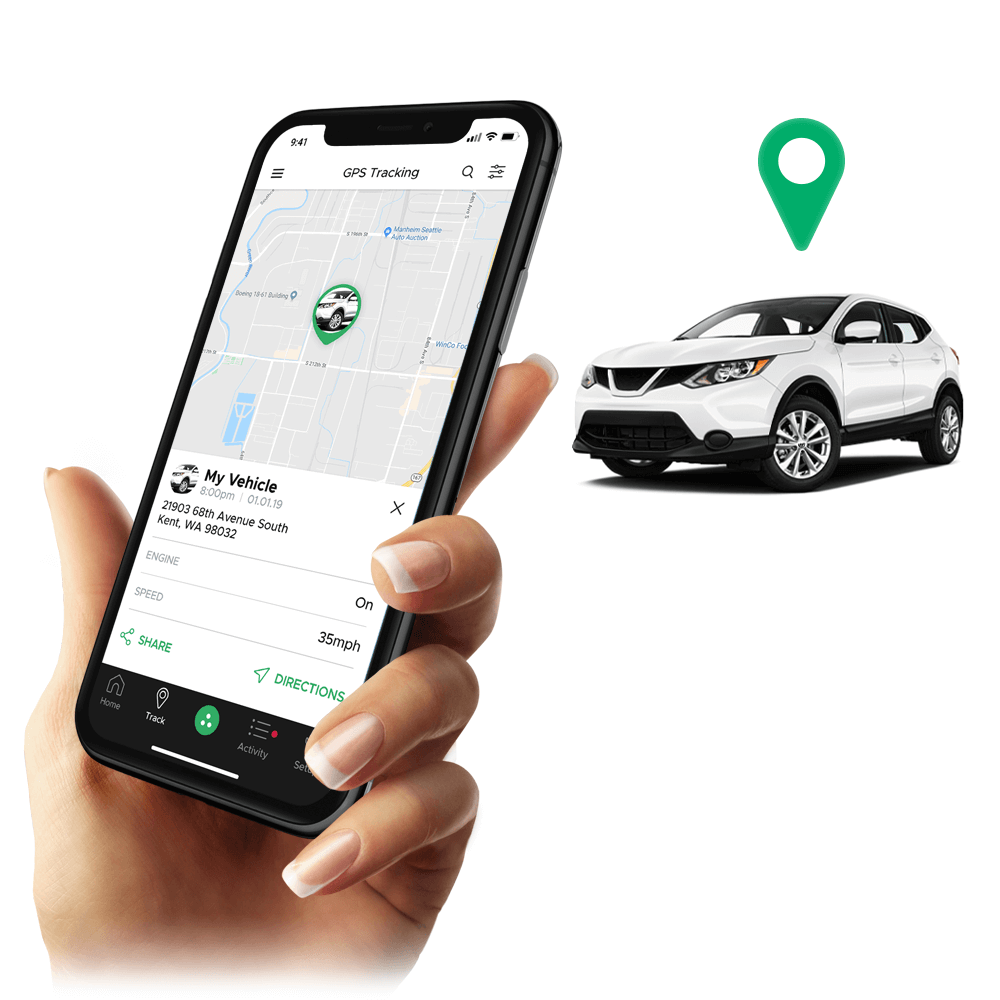How GPS Tracking Boosts Car Safety And Security and Tracking
How GPS Tracking Boosts Car Safety And Security and Tracking
Blog Article
Taking Full Advantage Of Efficiency With GPS Monitoring: Approaches for Fleet Monitoring and Property Monitoring
In the world of fleet administration and possession tracking, the application of General practitioner tracking systems has actually come to be a cornerstone for enhancing functional efficiency and performance. As we check out the numerous approaches and techniques to make best use of effectiveness with GPS tracking, a world of opportunities opens up to redefine how organizations handle their fleets and check their properties.
Carrying Out Real-Time Tracking Solutions
To make best use of operational performance, business can execute real-time radar that offer prompt location data for their possessions. By utilizing GPS innovation, services can obtain real-time understandings right into the location of their cars, tools, and various other valuable resources. This degree of visibility permits companies to enhance procedures, improve productivity, and boost overall performance.
Real-time monitoring systems provide numerous benefits for business throughout numerous sectors. With the capability to keep track of properties continually, organizations can maximize transmitting, schedule maintenance better, and decrease the risk of burglary or loss. These systems enable organizations to react immediately to any kind of unforeseen occasions or disturbances, ensuring very little downtime and maximum effectiveness.
Applying real-time radar calls for cautious planning and consideration of specific business demands. Companies should choose the appropriate modern technology supplier, tailor the system to satisfy their demands, and offer adequate training to workers. By purchasing real-time tracking solutions, services can stay ahead of the competition, provide remarkable client solution, and achieve sustainable growth in today's fast-paced market setting.
Enhancing Course Planning and Scheduling

One trick technique for optimizing route preparation is to utilize historic data and real-time information to determine one of the most efficient courses for cars. By analyzing previous routes and taking into consideration factors such as website traffic patterns and distribution windows, services can develop timetables that lessen unnecessary quits and hold-ups. Additionally, carrying out vibrant transmitting abilities permits for modifications to be made in real-time based on altering conditions, making certain that chauffeurs always take the most effective path to their location.
Enhancing Motorist Performance and Safety
Enhancing chauffeur efficiency and safety and security is extremely important in guaranteeing the safe and smooth operation of a fleet. By making use of general practitioner tracking modern technology, fleet supervisors can keep an eye on chauffeur habits in real-time and provide instant feedback to advertise secure driving techniques. This consists of tracking speed limits, extreme stopping, acceleration patterns, and adherence to website traffic guidelines.
In addition, general practitioner monitoring systems can aid in determining vehicle drivers who might require added training or support to enhance their performance (gps tracking). By analyzing information on driving patterns and routines, fleet managers can implement targeted training programs to attend to particular areas of enhancement. This positive method not only enhances overall vehicle driver performance yet likewise adds to a more secure workplace for everybody involved
Along with efficiency monitoring, general practitioner radar can also enhance driver safety by offering emergency help features. In the occasion of a crash or malfunction, chauffeurs can swiftly send call for help, permitting fleet managers to react without read more delay and dispatch assistance when needed. On the whole, incorporating GPS tracking modern technology into fleet administration strategies is essential for maximizing chauffeur efficiency and ensuring the security of both assets and chauffeurs.

Using Geofencing for Improved Security
Maximizing fleet security goes past keeping an eye on vehicle driver performance and security; one effective approach is with the tactical usage of geofencing modern technology. Geofencing enables fleet managers to establish digital borders or geozones around specific locations, enabling them to obtain real-time informs when lorries get in or exit these assigned locations. By establishing up geofences around risky locations such as building websites, unapproved locations, or also client places, fleet supervisors can boost safety procedures and alleviate prospective dangers.
Geofencing not only enhances security but also allows fast action times in instance of unapproved vehicle usage or burglary. In the occasion of a breach, alerts can be sent out to fleet supervisors, enabling them to take immediate action to find and recoup the lorry. In addition, geofencing can help in checking vehicle motion throughout off-hours, guaranteeing that lorries are not being utilized for unapproved purposes.
Incorporating GPS Information for Strategic Decision-Making
Using GPS data integration is vital for notified strategic decision-making in fleet administration operations. By incorporating GPS information go now into fleet monitoring systems, businesses can gain beneficial insights into their operations, bring about more efficient routes, improved driver actions, and far better general efficiency. With the combination of GPS data, fleet managers can track automobile areas in real-time, screen fuel consumption, and analyze vehicle driver efficiency metrics such as speed, idling time, and rough stopping.
In addition, incorporating GPS information enables the optimization of routes based on traffic conditions, weather condition patterns, and various other outside elements, assisting to minimize shipment times and functional expenses. By assessing historic GPS information, fleet supervisors can determine trends, patterns, and locations for renovation, enabling them to make data-driven choices that improve productivity and improve operations.
Conclusion
To conclude, the application of general practitioner tracking systems can substantially enhance effectiveness in fleet management and asset surveillance. By using real-time tracking, optimizing course planning, improving motorist performance, using geofencing for safety, and integrating GPS data for tactical decision-making, organizations can attain and improve operations expense financial savings (gps tracking). These approaches make it possible for businesses to improve processes, increase performance, and eventually make best use of the general performance of their operations
In the realm of fleet management and asset monitoring, the usage of GPS monitoring systems has ended up being a keystone for enhancing operational efficiency and productivity. As we discover the different techniques and techniques to maximize effectiveness with General practitioner tracking, a world of possibilities opens up to redefine exactly how companies handle their fleets and monitor their properties.
By using GPS monitoring innovation, fleet supervisors can check vehicle driver behavior in real-time and offer immediate responses to advertise risk-free driving techniques. Through the assimilation of GPS data, fleet supervisors can track car places in real-time, monitor fuel usage, website link and assess driver efficiency metrics such as rate, idling time, and rough stopping.
In verdict, the execution of GPS tracking systems can substantially enhance efficiency in fleet monitoring and asset monitoring.
Report this page